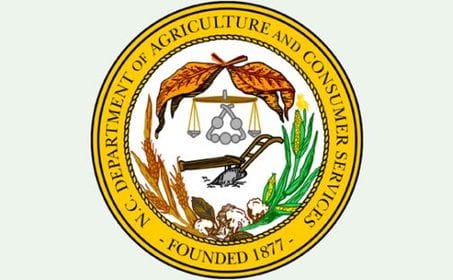Troxler encourages horse owners to vaccinate against EEE
RALEIGH – Agriculture Commissioner Steve Troxler is encouraging North Carolina horse owners to have their animals vaccinated against Eastern Equine Encephalomyelitis.
“Triple E is a mosquito-borne disease that causes inflammation or swelling of the brain and spinal cord in equine and is usually fatal,” Troxler said. “The disease is preventable by vaccination.”
There were nine recorded cases of EEE in horses in North Carolina in 2016, but the mild winter could cause that number to go up this year, State Veterinarian Doug Meckes said.
Symptoms of EEE include impaired vision, aimless wandering, head pressing, circling, inability to swallow, irregular staggering gait, paralysis, convulsions and death. Once a horse has been bitten by an infected mosquito, it may take three to 10 days for symptoms to appear.
“If your horses or other equine animals exhibit any symptoms of EEE, contact your veterinarian immediately,” Meckes said.
Meckes recommends that equine owners talk to their veterinarians about an effective vaccination protocol to protect horses from EEE and another mosquito-borne disease, West Nile virus. The combo vaccination initially requires two shots, 30 days apart, for horses, mules and donkeys that have no prior vaccination history. Meckes recommends a booster shot every six months.
Mosquitoes can breed in any puddle that lasts for more than four days, so removing any source of standing water can reduce the chance of exposing animals to WNV or EEE. Keeping horses in stalls at night, using insect screens and fans and turning off lights after dusk can also help reduce exposure to mosquitoes. Insect repellants can be effective if used according to the manufacturer’s instructions.
People, horses and birds can become infected from a bite by a mosquito carrying the diseases, but there is no evidence that horses can transmit the viruses to other horses, birds or people through direct contact.

